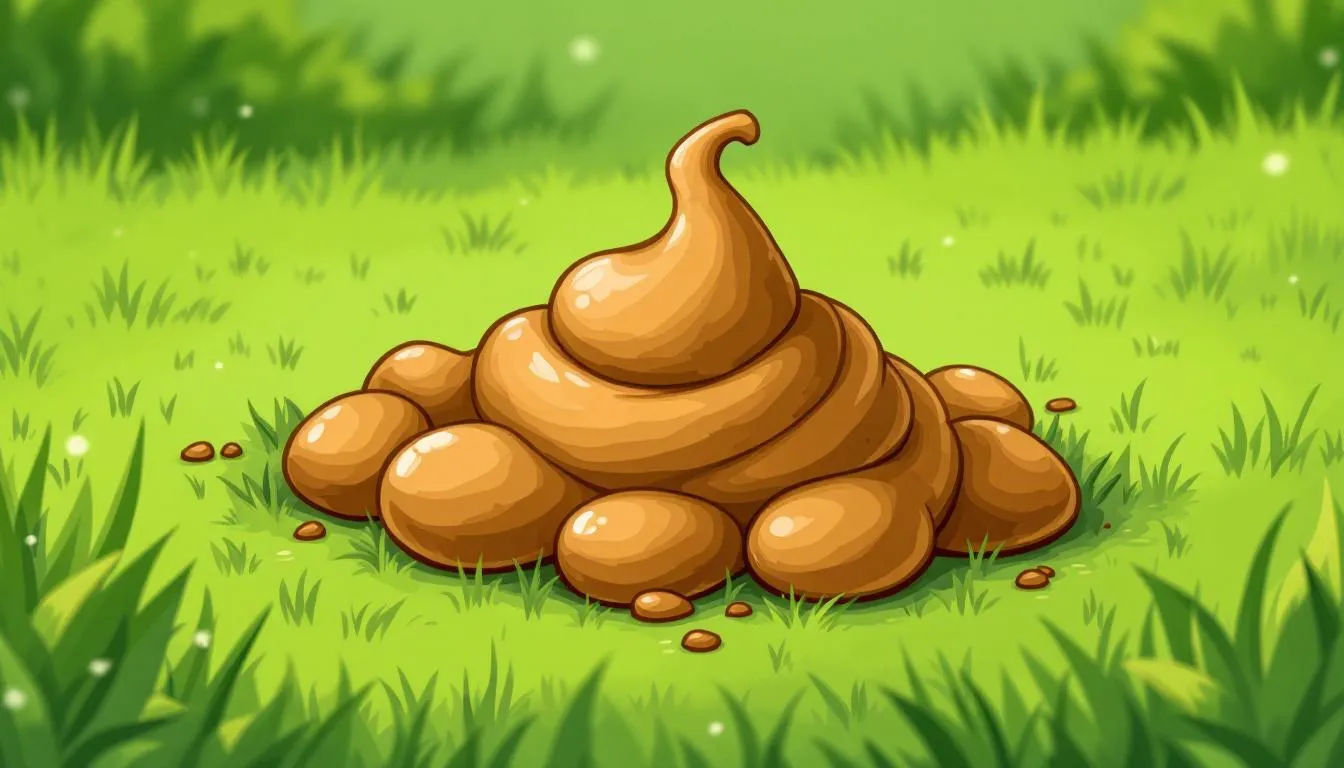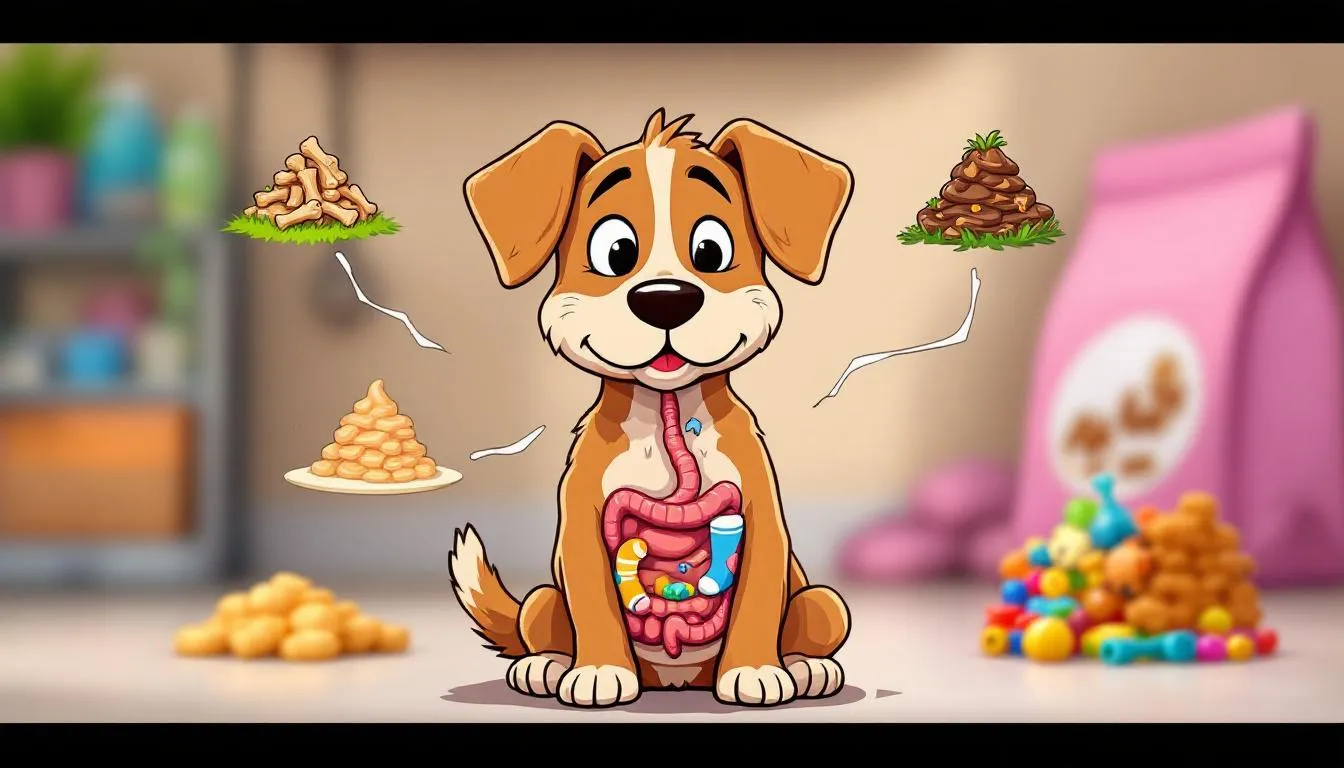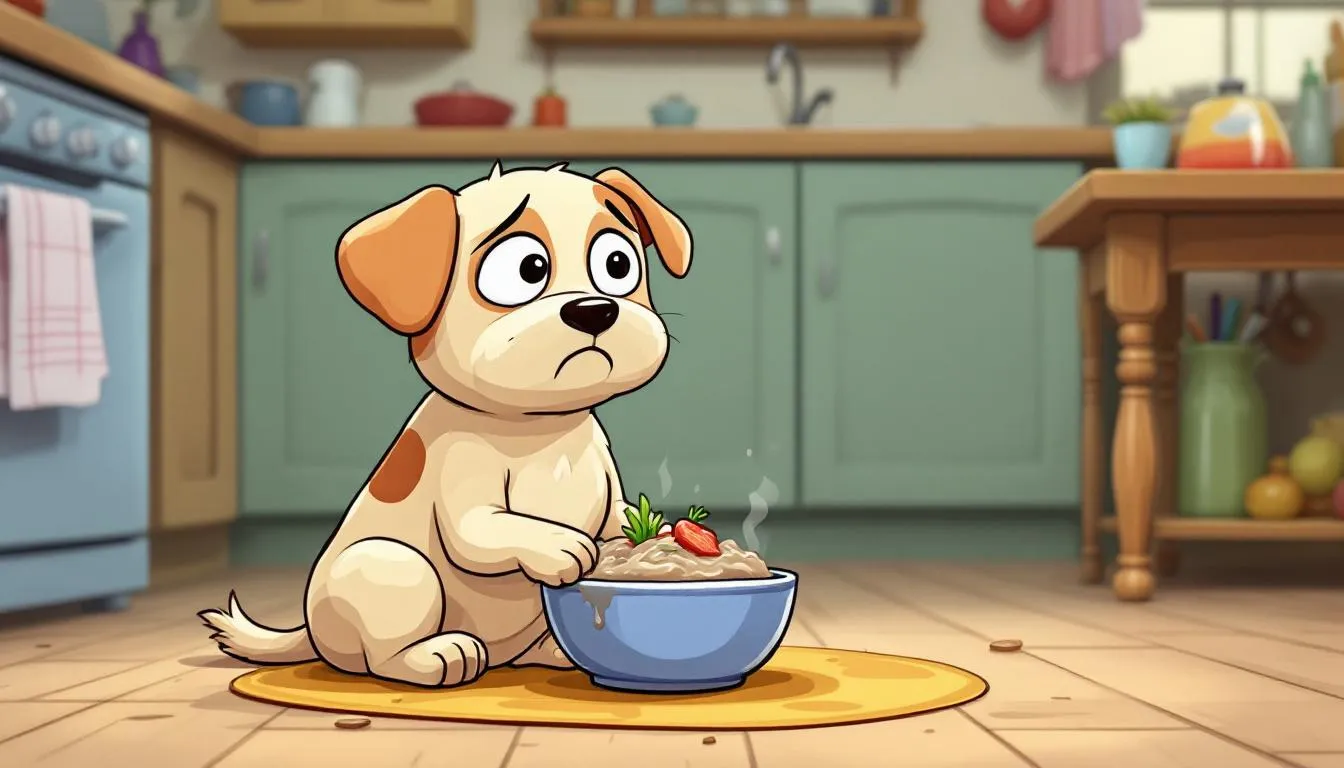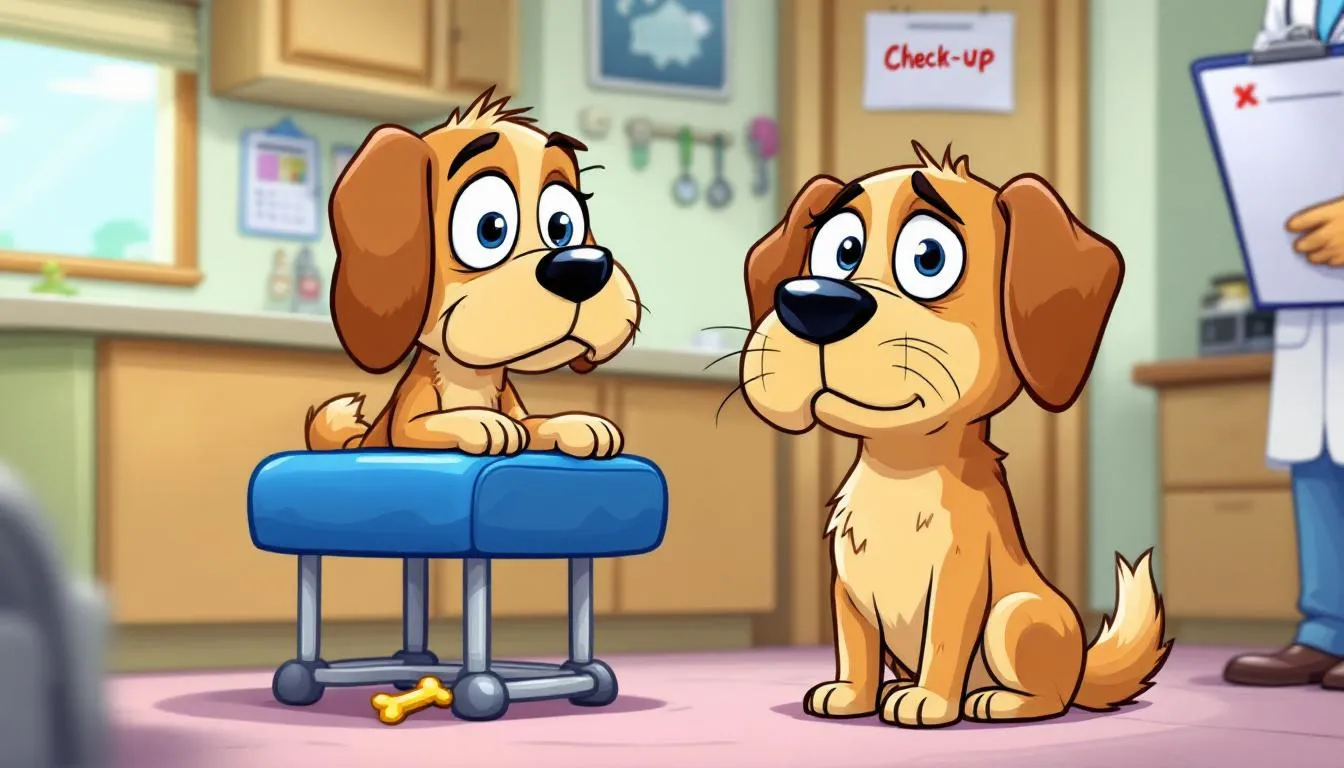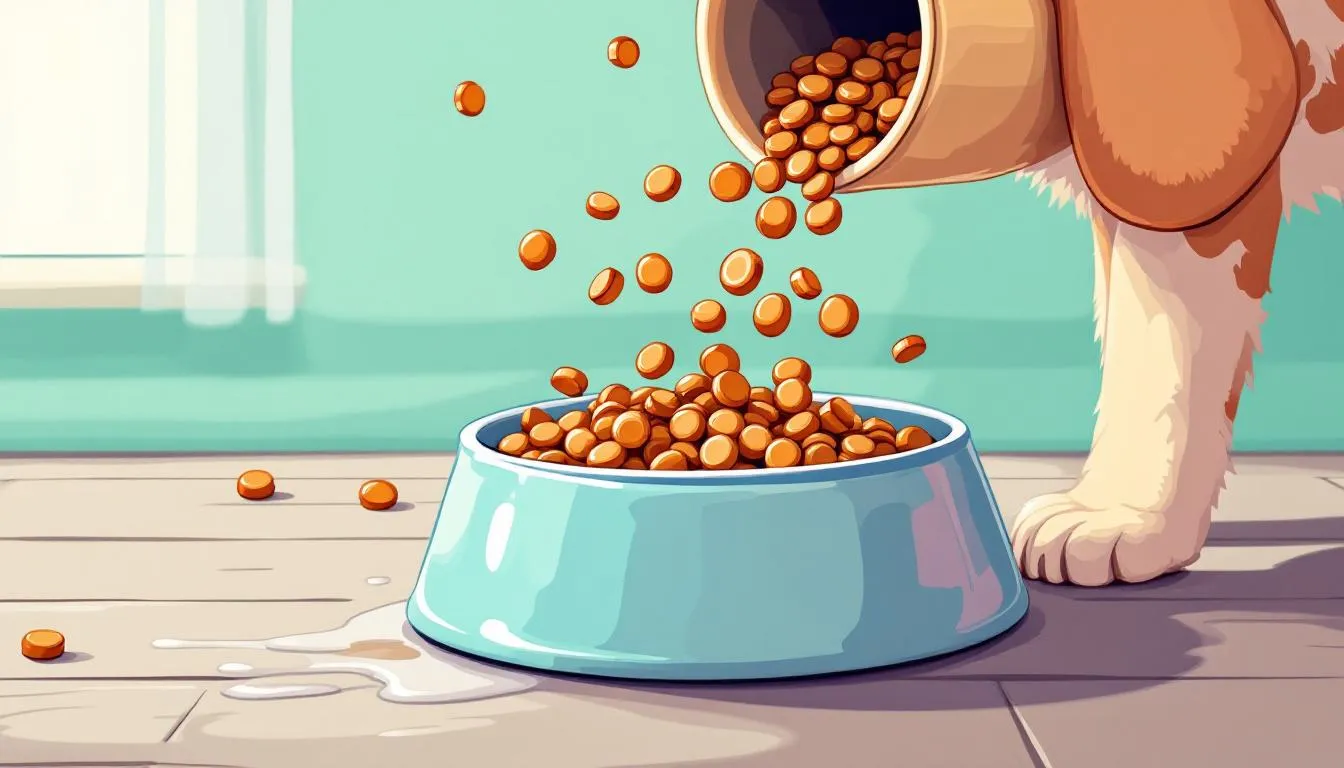How to Handle Dog Soft Poop: Causes and Solutions
Worried about your dog’s soft poop? Find out the common causes of dog soft poop and effective methods to firm them up in this article.
Key Takeaways
-
Normal dog poop should be chocolate brown, firm, and segmented; deviations in color, consistency, or frequency can indicate health issues.
-
Soft dog poop can result from dietary changes, stress, infections, or overfeeding; identifying the cause is crucial for treatment.
-
Prevent soft stools by maintaining a consistent feeding schedule, providing high-quality dog food, regular exercise, and avoiding table scraps.
What is Normal Dog Poop?
Normal dog poop is a key indicator of your dog’s health. Typically, healthy dog poop is chocolate brown, firm, and segmented. Monitoring these characteristics helps ensure that your dog’s digestive system is functioning properly. The dog's digestive system plays a crucial role in maintaining overall health, as it affects stool firmness, digestion, and can signal issues like infections or inflammatory bowel disease. Normal poop deviations in color, consistency, or frequency can signal potential health issues that need attention, including concerns related to your dog’s poo.
While observing your dog’s stools might seem trivial, it offers valuable insights into their overall well-being. The state of a dog's poo can reflect their general health, making it important to pay attention to any changes. A healthy digestive system is evident in the appearance of their stool, so regular monitoring is important for any dog owner.
Color
The color of your dog’s poop is one of the first things you’ll notice. Healthy dog poop is typically chocolate brown, which indicates a well-functioning digestive system. Any deviations from this color can be a red flag. Changes in your dog's food can also result in changes in stool color, so it's important to monitor any recent adjustments to your dog's diet.
For instance, bright red poop might signal blood or serious health issues, while white specks could indicate a parasite infection. Regularly checking your dog’s stool color can help catch potential health issues early.
Consistency
Another crucial factor is the consistency of your dog’s poop. Healthy poop should be firm and hold its shape, resembling segmented texture akin to a caterpillar. Slimy or jelly-like dog stool may indicate gastrointestinal issues. The large intestine plays a key role in absorbing water and forming firm stools, so problems with stool consistency can often be traced back to dysfunction in this part of the digestive system.
Consistency directly reflects your dog’s health and should be closely monitored.
Frequency
Adult dogs typically poop 1-3 times daily. Most dogs may experience variations in this frequency depending on their diet and activity level. Frequent pooping or indoor accidents may signal the need for a veterinary check-up.
On the other hand, pooping less often than usual could indicate constipation or a blockage. Tracking bowel movements helps detect any deviations from their normal routine.
Causes of Soft Dog Poop
Soft dog poop can be concerning, and understanding the causes is the first step in addressing it. Factors that can lead to soft stools include:
-
Diet-related issues
-
Stress
-
Sudden dietary changes or diet change
-
Feeding human food
-
Consuming spoiled food
-
Dietary indiscretion (eating unusual or inappropriate items)
-
When a dog eats non-food objects
All of these can contribute to digestive upset.
Bacterial, viral, and parasitic infections, along with stress and anxiety, can also significantly impact digestive health, resulting in bacterial infection soft dog's stools.
Liquid stools are a more severe form of soft poop and may indicate an underlying condition.
Dietary Changes
Sudden dietary changes can lead to soft stools. Rapid introduction of new food or treats can disrupt their digestive system. To prevent this, gradually change their diet over a period of up to two weeks, especially if your dog has food intolerances. After the transition, it is important to return your dog to their normal diet to help maintain digestive health and prevent issues like colitis or mucus in the stool.
A gradual transition helps their digestive system adjust without causing soft stools. Once your dog's digestive system has adjusted, you can begin to reintroduce their regular food to restore normal eating habits.
Food Intolerances
Food intolerances can also cause soft dog poop. Common dietary issues include:
-
A lack of essential proteins (soft stools can result from a diet that is lacking in certain nutrients, usually protein)
-
A lack of fibers
-
Dairy, which is a frequent offender; removing it from the diet can significantly improve stool consistency These issues can lead to digestive problems.
Managing your dog's diet is important to prevent food intolerances and maintain healthy stool.
Dogs with conditions like inflammatory bowel disease may require a specialized diet to manage symptoms.
Overfeeding
Overfeeding, even with appropriate food, can overwhelm their digestive system, resulting in undigested food passing through and causing loose stools or inconsistent stools.
Mindful portion sizes and appropriate feeding help maintain digestive health and prevent soft stools.
Infections and Parasites
Infections and parasites significantly cause soft stools in dogs. Bacterial infections like Salmonella and Campylobacter, and intestinal parasites such as Giardia, can severely affect digestive health. Symptoms include vomiting, lethargy, and changes in stool consistency. Severe infections or parasites can sometimes cause intestinal bleeding, which may be seen as blood in the stool. Parasites can also disrupt the dog's intestinal tract, leading to digestive issues.
Consult a veterinarian if you suspect an infection or parasite.
Stress and Anxiety
Environmental changes or stressful events can trigger digestive disturbances in dogs, leading to softer stools. Events like moving, changes in routine, or loud noises can cause stress and anxiety, disrupting your dog’s digestive system.
Maintaining a stable environment and routine helps manage stress and maintain digestive health.
Health Issues Signaled by Changes in Dog Poop
Changes in your dog’s poop can be more than just a minor inconvenience—they can be early warning signs of underlying health issues. For pet parents, keeping a close eye on your dog’s stool is a simple yet powerful way to monitor your furry friend’s health. Shifts in color, consistency, or frequency may point to digestive disorders, pancreatic or liver problems, or other medical conditions that require attention. By understanding what your dog’s poop is telling you, you can catch potential problems early and ensure your dog receives the care they need.
Digestive Disorders
Digestive disorders are a common reason for changes in a dog’s poop. Conditions like inflammatory bowel disease can cause chronic soft stool, dog diarrhea, or even the presence of excess mucus in your dog’s stool. Inflammatory bowel disease leads to ongoing inflammation in the digestive system, resulting in digestive upset and irregular bowel movements. Bacterial infections, such as those caused by E. coli or salmonella, can also disrupt your dog’s digestive tract, leading to soft poop and other symptoms like vomiting or loss of appetite.
Managing digestive disorders often involves dietary adjustments. A high protein diet, free from table scraps and unnecessary additives, can help support your dog’s digestive health. If you notice persistent soft stool, dog diarrhea, or mucus in your dog’s poop, consult your veterinarian to rule out bacterial infections or chronic conditions like inflammatory bowel disease. Early intervention and the right diet can make a significant difference in your dog’s well-being.
Pancreatic or Liver Problems
Pancreatic and liver problems can also manifest as changes in your dog’s poop. If you notice pale, yellow, or greasy stools, or if your dog experiences diarrhea or vomiting, these could be signs of issues with the pancreas or liver. Such conditions can be serious and may require immediate veterinary care, especially if symptoms persist or worsen.
Your dog’s diet plays a crucial role in supporting pancreatic and liver health. Including ingredients like canned pumpkin and sweet potato can provide gentle fiber and nutrients that aid digestion and help maintain healthy dog poop. Regular veterinary care, including routine checkups and monitoring your dog’s stool, is essential for catching these problems early. By staying vigilant and feeding a balanced diet, you can help protect your dog from complications related to pancreatic or liver issues and keep their digestive system running smoothly.
How to Firm Up Your Dog's Stool
For consistently soft stools, several strategies can help firm them up. How you feed your dog, including portion size and feeding frequency, can impact stool consistency. A diet rich in high-quality protein and fiber helps maintain firm stools.
Proper hydration, a bland diet, fiber supplements, and probiotics can all improve stool consistency and overall digestive health. Water is essential for binding fiber in the gut, which helps firm up stools and supports healthy digestion.
Hydration
Proper hydration maintains stool consistency. Adequate water intake keeps the digestive system functioning smoothly, preventing soft stools.
Always ensure access to fresh water to support digestive health.
Bland Diet
A bland diet of boiled chicken and white rice is highly digestible and can stabilize stool. Feed small amounts for 2-3 days to see improvements.
If your dog is otherwise healthy, continue with bland food for a couple of days.
Fiber Supplements
Fiber supplements can effectively firm up stool. Fiber absorbs excess fluid in the digestive tract, solidifying stool. Oats provide both soluble and insoluble fiber, beneficial for digestive balance.
Incorporating fiber-rich foods supports digestive health.
Probiotics
Probiotics support gut health and improve digestion. Including probiotics in the diet helps restore intestinal tract bacteria balance, firming stool.
Probiotic supplements, like Fortiflora, effectively promote healthy gut bacteria and improve stool consistency.
When to Consult a Veterinarian
Many cases of soft dog poop can be managed at home, but sometimes a veterinarian is necessary. Persistent soft stools, additional symptoms, or significant changes in stool characteristics need veterinary attention. A physical exam by a veterinarian is important to help identify any underlying causes of soft poop.
A veterinarian check can perform diagnostic tests to identify causes and recommend treatment. Avoid giving your dog certain medications, especially human or over-the-counter drugs, without veterinary guidance, as some can be harmful or toxic to dogs. Be sure to report your dog's diarrhea and any other symptoms to your vet. Watch for other signs such as skin infections, persistent itching, vomiting, or excessive gas, as these may indicate a more serious problem requiring prompt veterinary care.
Persistent Soft Stools
If soft stool persists beyond two days without improvement, consult a vet. Monitoring stool consistency is vital as changes can indicate health issues. Prompt consultation can prevent health complications and ensure necessary care.
Additional Symptoms
Symptoms that warrant immediate veterinary care include:
-
Lethargy
-
Vomiting
-
Decreased appetite
-
Blood in stool alongside soft stools and acute hemorrhagic diarrhea syndrome
These symptoms and other symptoms can indicate severe conditions requiring professional attention due to an underlying cause related to an underlying health issue.
Prompt veterinary attention upon noticing these signs can make a significant difference in your dog’s health.
Diagnostic Tests
Veterinarians may perform diagnostic tests to determine causes of soft dog poop. Fecal examinations, blood tests, and imaging studies like X-rays or ultrasounds help identify infections, parasites, or gastrointestinal issues.
These tests provide critical information and guide appropriate treatment, including a complete blood count and a detailed history.
Prevention Tips for Soft Dog Poop
Preventing soft dog poop is often easier than treating it. Effective strategies include:
-
Regular feeding schedules
-
Regular exercise
-
Avoiding table scraps
These measures support digestive health and help maintain firm stools.
Consistent Feeding Schedule
A consistent feeding schedule supports digestive health. Adult dogs should ideally be fed twice daily, with meals spaced 6-8 hours apart. This routine allows adequate digestion and helps prevent issues like soft stools.
High-Quality Dog Food
The type, amount, and quality of food significantly impact digestion and stool characteristics. A high-quality, highly digestible, high-protein meat-based diet is recommended for a high protein diet. Avoid dog foods containing preservatives and paté styles for healthy digestion.
Being mindful of the most common causes of food intolerances, like beef, dairy, chicken, and wheat, helps prevent digestive issues related to food intolerance.
Regular Exercise
Regular exercise is crucial for overall health and well-being. It stimulates the gastrointestinal tract movement, maintaining bowel health and preventing stool from absorbing excess water.
Daily walks, playtime, or other physical activities keep your dog active and support the dog’s digestive system.
Avoid Table Scraps
A consistent and balanced diet helps avoid soft stools. Sudden dietary changes, like introducing table scraps, can cause digestive issues and soft stools. Certain human foods can lead to food intolerances, contributing to gastrointestinal problems.
To support digestive health, refrain from feeding dog table scraps and stick to the designated diet.
Home Remedies for Mild Cases
For mild cases of soft dog poop, home remedies can be effective and safe. Options include:
-
Short-term fasting
-
Bland food
-
Probiotics These remedies can help manage and improve stool consistency and often resolve minor digestive issues without professional intervention.
Short-term Fasting
Short-term fasting can reset the digestive system by clearing out irritants. A fasting period of 12-24 hours allows the digestive system to rest and recover.
Monitor your dog after fasting to ensure recovery and proper digestive function.
Bland Food Introduction
Introducing bland food helps manage mild cases of soft dog poop. Bland food, like boiled chicken and rice, is easy to digest and helps stabilize stool.
Feeding small amounts of bland food for a couple of days can significantly improve stool sample consistency.
Probiotic Use
Incorporating probiotics into the diet promotes better digestion and improves stool consistency. Probiotics are good bacteria that support gut health.
Options like plain yogurt with active cultures or specialized probiotic supplements can enhance digestive health.
Summary
Understanding and managing your dog’s poop is essential for their overall health. By recognizing what normal dog poop looks like, identifying common causes of soft stools, and implementing strategies to firm up their stool, you can ensure your dog’s digestive health remains in excellent condition. Remember to consult a veterinarian when necessary and follow preventive measures to avoid future issues. Your proactive approach will keep your furry friend happy and healthy.
Frequently Asked Questions
What does normal dog poop look like?
Normal dog poop should be chocolate brown, firm, and segmented, indicating a healthy digestive system. Keeping an eye on your dog's stool can help you monitor their health.
What should I do if my dog's poop is consistently soft?
If your dog's poop is consistently soft, it's important to consult a veterinarian, as this may indicate underlying health issues that need professional evaluation. Timely attention can help ensure your dog's well-being.
Can stress cause soft stools in dogs?
Yes, stress can cause soft stools in dogs, as environmental changes or stressful events may disrupt their digestive system. It's important to monitor their stress levels and seek veterinary advice if the issue persists.
How can I firm up my dog's stool?
To firm up your dog's stool, maintain proper hydration, introduce a bland diet, add fiber-rich foods, and consider probiotics. These steps can help improve your dog's digestive health effectively.
When should I consult a veterinarian about my dog's soft stools?
You should consult a veterinarian immediately if your dog exhibits symptoms such as lethargy, vomiting, decreased appetite, blood in the stool, or fever along with soft stools. Timely attention can prevent further complications.

